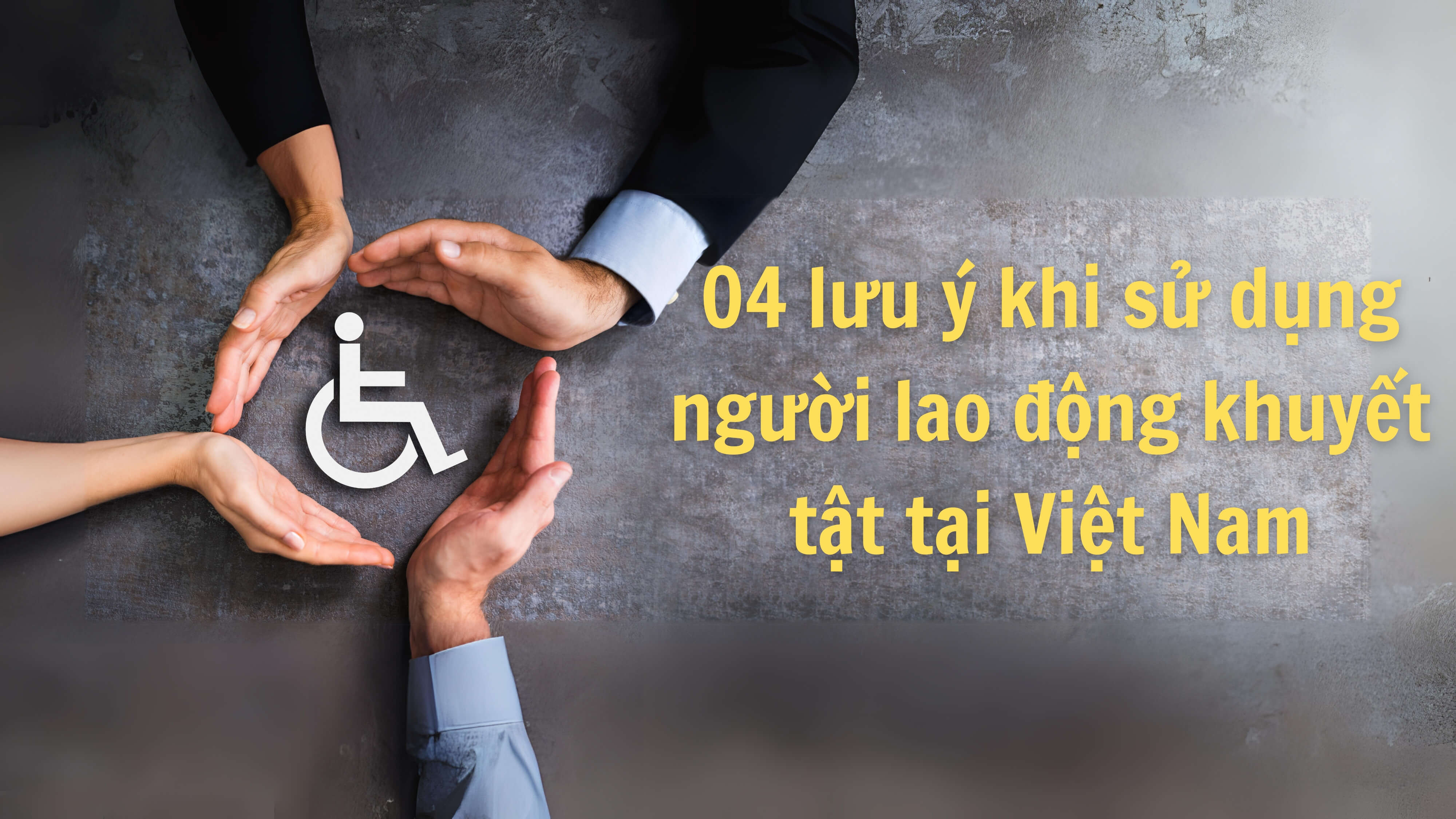 Tìm kiếm
Tìm kiếm
Chương III Luật người khuyết tật 2010: Chăm sóc sức khỏe
| Số hiệu: | 51/2010/QH12 | Loại văn bản: | Luật |
| Nơi ban hành: | Quốc hội | Người ký: | Nguyễn Phú Trọng |
| Ngày ban hành: | 17/06/2010 | Ngày hiệu lực: | 01/01/2011 |
| Ngày công báo: | 29/09/2010 | Số công báo: | Từ số 570 đến số 571 |
| Lĩnh vực: | Văn hóa - Xã hội | Tình trạng: | Còn hiệu lực |
TÓM TẮT VĂN BẢN
Văn bản tiếng việt
Văn bản tiếng anh
1. Trạm y tế cấp xã có trách nhiệm sau đây:
a) Triển khai các hình thức tuyên truyền, giáo dục, phổ biến kiến thức phổ thông về chăm sóc sức khỏe, phòng ngừa, giảm thiểu khuyết tật; hướng dẫn người khuyết tật phương pháp phòng bệnh, tự chăm sóc sức khỏe và phục hồi chức năng;
b) Lập hồ sơ theo dõi, quản lý sức khỏe người khuyết tật;
c) Khám bệnh, chữa bệnh phù hợp với phạm vi chuyên môn cho người khuyết tật.
2. Kinh phí để thực hiện quy định tại điểm a và điểm b khoản 1 Điều này do ngân sách nhà nước bảo đảm.
1. Nhà nước bảo đảm để người khuyết tật được khám bệnh, chữa bệnh và sử dụng các dịch vụ y tế phù hợp.
2. Người khuyết tật được hưởng chính sách bảo hiểm y tế theo quy định của pháp luật về bảo hiểm y tế.
3. Gia đình người khuyết tật có trách nhiệm tạo điều kiện thuận lợi để người khuyết tật được khám bệnh, chữa bệnh.
4. Người khuyết tật là người mắc bệnh tâm thần ở trạng thái kích động, trầm cảm, có ý tưởng, hành vi tự sát hoặc gây nguy hiểm cho người khác được hỗ trợ sinh hoạt phí, chi phí đi lại và chi phí điều trị trong thời gian điều trị bắt buộc tại cơ sở khám bệnh, chữa bệnh.
5. Khuyến khích tổ chức, cá nhân hỗ trợ thực hiện khám bệnh, chữa bệnh cho người khuyết tật.
1. Thực hiện biện pháp khám bệnh, chữa bệnh phù hợp cho người khuyết tật.
2. Ưu tiên khám bệnh, chữa bệnh cho người khuyết tật đặc biệt nặng và người khuyết tật nặng, trẻ em khuyết tật, người cao tuổi khuyết tật, phụ nữ khuyết tật có thai theo quy định của pháp luật về khám bệnh, chữa bệnh.
3. Tư vấn biện pháp phòng ngừa và phát hiện sớm khuyết tật; xác định khuyết tật bẩm sinh đối với trẻ em sơ sinh để kịp thời có biện pháp điều trị và chỉnh hình, phục hồi chức năng phù hợp.
4. Thực hiện cải tạo, nâng cấp cơ sở vật chất phục vụ khám bệnh, chữa bệnh chưa bảo đảm điều kiện tiếp cận đối với người khuyết tật.
1. Cơ sở chỉnh hình, phục hồi chức năng là cơ sở cung cấp dịch vụ chỉnh hình, phục hồi chức năng cho người khuyết tật.
2. Cơ sở chỉnh hình, phục hồi chức năng bao gồm:
a) Viện chỉnh hình, phục hồi chức năng;
b) Trung tâm chỉnh hình, phục hồi chức năng;
c) Bệnh viện điều dưỡng, phục hồi chức năng;
d) Khoa phục hồi chức năng của cơ sở khám bệnh, chữa bệnh;
đ) Bộ phận phục hồi chức năng của cơ sở bảo trợ xã hội;
e) Cơ sở khác.
3. Việc thành lập và hoạt động của cơ sở chỉnh hình, phục hồi chức năng được thực hiện theo quy định của pháp luật.
4. Nhà nước bảo đảm việc đầu tư xây dựng cơ sở vật chất kỹ thuật đối với cơ sở chỉnh hình, phục hồi chức năng công lập.
1. Phục hồi chức năng dựa vào cộng đồng là biện pháp thực hiện tại cộng đồng nhằm chuyển giao kiến thức về vấn đề khuyết tật, kỹ năng phục hồi và thái độ tích cực đến người khuyết tật, gia đình của họ và cộng đồng nhằm tạo sự bình đẳng về cơ hội và hòa nhập cộng đồng cho người khuyết tật.
2. Người khuyết tật được tạo điều kiện, hỗ trợ phục hồi chức năng dựa vào cộng đồng.
3. Gia đình người khuyết tật có trách nhiệm tạo điều kiện thuận lợi để người khuyết tật phục hồi chức năng dựa vào cộng đồng.
4. Cơ sở chỉnh hình, phục hồi chức năng có trách nhiệm tham gia hướng dẫn hoạt động chuyên môn phục hồi chức năng dựa vào cộng đồng.
5. Ủy ban nhân dân các cấp có trách nhiệm xây dựng và tổ chức thực hiện chương trình phục hồi chức năng dựa vào cộng đồng; tạo điều kiện để cơ quan, tổ chức và cá nhân tổ chức hoặc tham gia thực hiện hoạt động phục hồi chức năng dựa vào cộng đồng.
1. Nhà nước hỗ trợ kinh phí theo dự án cho cơ quan, tổ chức nghiên cứu khoa học về người khuyết tật, đào tạo chuyên gia, kỹ thuật viên về chỉnh hình, phục hồi chức năng.
2. Cơ sở sản xuất dụng cụ chỉnh hình, phương tiện, thiết bị phục hồi chức năng, trợ giúp sinh hoạt, học tập và lao động cho người khuyết tật được vay vốn với lãi suất ưu đãi, được miễn, giảm thuế theo quy định của pháp luật.
3. Dụng cụ chỉnh hình, phương tiện, thiết bị phục hồi chức năng, trợ giúp sinh hoạt, học tập và lao động cho người khuyết tật từ chương trình, dự án viện trợ không hoàn lại hoặc do tổ chức, cá nhân nước ngoài tặng, hỗ trợ được miễn, giảm thuế theo quy định của pháp luật về thuế.
HEALTHCARE
Article 21. Primary healthcare at places of residence
1. Commune-level health stations shall:
a/ Apply various forms of propagation, education and popularization of general knowledge of healthcare and disability prevention and minimization; guide persons with disabilities in methods of disease prevention, healthcare and functional rehabilitation;
b/ Compile dossiers for health monitoring and management of persons with disabilities;
c/ Give medical examination and treatment as suitable to their professional scope to persons with disabilities.
2. The fund for materialization of Points a and b, Clause 1 of this Article shall be provided from the state budget.
Article 22. Medical examination and treatment
1. The State guarantees that persons with disabilities have access to medical examination and treatment as well as appropriate medical services.
2. Persons with disabilities are entitled to health insurance under the law on health insurance.
3. Families of persons with disabilities shall create favorable conditions for such persons to receive medical examination and treatment.
4. A person with disabilities who suffers a menial disease, being in the state of incitement or depression, having the idea and/or act of committing suicide or posing danger to other persons, shall be provided with supports in daily-life allowance, travel and hospitalization expenses in the period of compulsory treatment at medical examination and treatment establishments.
5. Organizations and individuals are encouraged to provide medical examination and treatment as support to persons with disabilities.
Article 23. Responsibilities of medical examination and treatment establishments
1. To apply appropriate medical examination and treatment measures to persons with disabilities.
2. To prioritize medical examination and treatment for persons with exceptionally serious disabilities, persons with serious disabilities as well as children, elderly persons and pregnant women with disabilities in accordance with the law on medical examination and treatment.
3. To advise on prevention and early detection of disability; determine congenital disability in infants in order to apply appropriate measures for treatment, orthopedic operations and functional rehabilitation.
4. To renovate and upgrade physical foundations for medical examination and treatment which are not yet accessible to persons with disabilities.
Article 24. Orthopedic and functional rehabilitation establishments
1. Orthopedic and functional rehabilitation establishments are those which provide orthopedic operations and functional rehabilitation services for persons with disabilities.
2. Orthopedic and functional rehabilitation establishments include:
a/ Orthopedic and functional rehabilitation institutes;
b/ Orthopedic and functional rehabilitation centers;
c/ Convalescence and functional rehabilitation hospitals;
d/ Functional rehabilitation departments of medical examination and treatment establishments;
e/ Functional rehabilitation sections of social relief centers;
f/ Other establishments.
The setting up and operation of orthopedic and functional rehabilitation establishments comply with law.
The State shall invest in the construction of physical and technical foundations of public orthopedic and functional rehabilitation facilities.
Article 25. Community-based functional rehabilitation
Community-based functional rehabilitation means a measure to be implemented at communities with a view to transferring knowledge on disability, rehabilitation skills and positive attitudes to persons with disabilities, their families and communities in order to create equality in opportunity and community integration for persons with disabilities.
Persons with disabilities shall be given conditions and supports for community-based functional rehabilitation.
Families of persons with disabilities shall create favorable conditions for such persons to have community-based functional rehabilitation.
Orthopedic and functional rehabilitation establishments shall participate in guiding professional activities of community-based functional rehabilitation.
People's Committees at all levels shall formulate and realize programs on community-based functional rehabilitation; and create conditions for agencies, organizations and individuals to organize or participate in community-based functional rehabilitation activities.
Article 26. Scientific research, training of experts and technicians, manufacture of equipment for persons with disabilities
The State shall provide funding supports under projects for agencies or organizations conducting scientific researches in persons with disabilities and training orthopedic and functional rehabilitation experts and technicians.
Establishments manufacturing orthopedic instruments, functional rehabilitation facilities and equipment for daily-life activities, learning and work of persons with disabilities are entitled to concessional loans and tax exemption or reduction under law.
Orthopedic instruments, facilities and equipment for functional rehabilitation, daily-life activities, study and work of persons with disabilities, which come from non-refundable aid programs or projects or are donated by foreign organizations and individuals, are entitled to tax exemption or reduction under the tax law.
Cập nhật
Bài viết liên quan
Đăng ký tạm trú online Hà Nội nhanh chóng và hiệu quả mới nhất năm 2025?

Đăng ký tạm trú online Hà Nội nhanh chóng và hiệu quả mới nhất năm 2025?
Đăng ký tạm trú online là thủ tục đăng ký tạm trú đang được người dân sử dụng ngày càng nhiều và phổ biến. Việc đăng ký tạm trú online giúp tiết kiệm thời gian, chi phí, công sức mà hiệu quả cao. Bài viết sau đây sẽ làm rõ về thủ tục đăng ký tạm trú online Hà Nội nhanh chóng và hiệu quả mới nhất năm 2025. 08/01/2025Đăng ký tạm trú online TP. HCM nhanh chóng và hiệu quả theo quy định mới nhất 2025?

Đăng ký tạm trú online TP. HCM nhanh chóng và hiệu quả theo quy định mới nhất 2025?
Đăng ký hoặc khai báo tạm trú giúp bảo vệ người dân, đảm bảo tình hình an toàn xã hội, thuận tiện cho cơ quan chức năng trong việc quản lý dân cư và dữ liệu công dân. Các cá nhân phải tiến hành khai báo về cư trú đầy đủ và chính xác. Bài viết sau đây sẽ làm rõ về cách thức đăng ký tạm trú online TP. HCM nhanh chóng và hiệu quả theo quy định mới nhất 2025. 07/01/2025Nhập hộ khẩu bao lâu có kết quả mới nhất năm 2025?

Nhập hộ khẩu bao lâu có kết quả mới nhất năm 2025?
Việc nhập hộ khẩu là một thủ tục hành chính quan trọng và cần thiết đối với công dân Việt Nam, giúp xác định nơi cư trú và quyền lợi của người dân. Tuy nhiên, nhiều người vẫn còn băn khoăn về thời gian xử lý hồ sơ nhập hộ khẩu và các yếu tố ảnh hưởng đến quá trình này. Trong bài viết này, chúng ta sẽ tìm hiểu về quy trình nhập hộ khẩu và thời gian bao lâu có kết quả mới nhất vào năm 2025, giúp bạn có cái nhìn rõ ràng hơn và chuẩn bị tốt hơn khi thực hiện thủ tục này. 27/12/2024Nhập hộ khẩu cần chuẩn bị những giấy tờ gì mới nhất năm 2025?

Nhập hộ khẩu cần chuẩn bị những giấy tờ gì mới nhất năm 2025?
Nhập hộ khẩu là một bước quan trọng trong việc xác định nơi cư trú và quyền lợi của mỗi công dân. Đặc biệt, năm 2025, các quy định về giấy tờ cần thiết để thực hiện thủ tục này đã có những cập nhật đáng chú ý. Trong bài viết này, chúng tôi sẽ hướng dẫn bạn về những giấy tờ mới nhất mà bạn cần chuẩn bị khi nhập hộ khẩu, giúp quá trình thực hiện trở nên nhanh chóng và thuận tiện hơn. Hãy cùng khám phá để đảm bảo bạn có đầy đủ thông tin và tài liệu cần thiết cho việc đăng ký hộ khẩu một cách suôn sẻ! 27/12/2024Điều kiện đăng ký hộ khẩu tại TP. HCM, Hà Nội mới nhất năm 2025

Điều kiện đăng ký hộ khẩu tại TP. HCM, Hà Nội mới nhất năm 2025
Đăng ký hộ khẩu là một trong những thủ tục quan trọng trong đời sống của mỗi công dân, đặc biệt tại những thành phố lớn như TP. HCM và Hà Nội. Năm 2025, quy định về điều kiện đăng ký hộ khẩu đã có nhiều thay đổi nhằm tạo điều kiện thuận lợi hơn cho người dân. Bài viết này sẽ cung cấp thông tin chi tiết về các điều kiện mới nhất để đăng ký hộ khẩu tại hai thành phố này, giúp bạn nắm rõ những yêu cầu cần thiết, từ giấy tờ đến quy trình thực hiện. Hãy cùng tìm hiểu để không bỏ lỡ cơ hội hưởng lợi từ những chính sách mới! 13/01/2025Hướng dẫn đăng ký nhập hộ khẩu online ngay tại nhà nhanh chóng năm 2025

Hướng dẫn đăng ký nhập hộ khẩu online ngay tại nhà nhanh chóng năm 2025
Trong thời đại công nghệ 4.0, việc thực hiện các thủ tục hành chính trở nên dễ dàng và tiện lợi hơn bao giờ hết. Năm 2025, đăng ký nhập hộ khẩu online ngay tại nhà không chỉ giúp tiết kiệm thời gian mà còn giảm bớt những phiền phức khi phải đến trực tiếp cơ quan chức năng. Bài viết này sẽ hướng dẫn bạn từng bước để thực hiện thủ tục này một cách nhanh chóng và hiệu quả, giúp bạn nắm rõ quy trình và những lưu ý cần thiết để hoàn tất việc đăng ký hộ khẩu một cách suôn sẻ. Hãy cùng khám phá những tiện ích mà dịch vụ trực tuyến mang lại. 27/12/2024Nhập khẩu Hà Nội hết bao nhiêu tiền năm 2025?

Nhập khẩu Hà Nội hết bao nhiêu tiền năm 2025?
Việc nhập khẩu vào Hà Nội năm 2024 không có chi phí chính thức nào được quy định cho việc nộp hồ sơ đăng ký thường trú. Tuy nhiên, một số chi phí có thể phát sinh liên quan đến thủ tục hành chính và các giấy tờ cần thiết. Dưới đây là một số thông tin liên quan. 13/01/2025Hướng dẫn thủ tục nhập hộ khẩu Hà Nội, TP Hồ Chí Minh từ 01/7/2021

Hướng dẫn thủ tục nhập hộ khẩu Hà Nội, TP Hồ Chí Minh từ 01/7/2021
Từ ngày 01/7/2021, theo quy định của Luật Cư trú 2020, việc nhập hộ khẩu (đăng ký thường trú) tại Hà Nội và TP Hồ Chí Minh có một số điểm mới quan trọng. Dưới đây là hướng dẫn về thủ tục nhập hộ khẩu cho hai thành phố này. 13/01/202504 lưu ý khi sử dụng người lao động khuyết tật tại Việt Nam


 Luật người khuyết tật 2010 (Bản Pdf)
Luật người khuyết tật 2010 (Bản Pdf)
 Luật người khuyết tật 2010 (Bản Word)
Luật người khuyết tật 2010 (Bản Word)